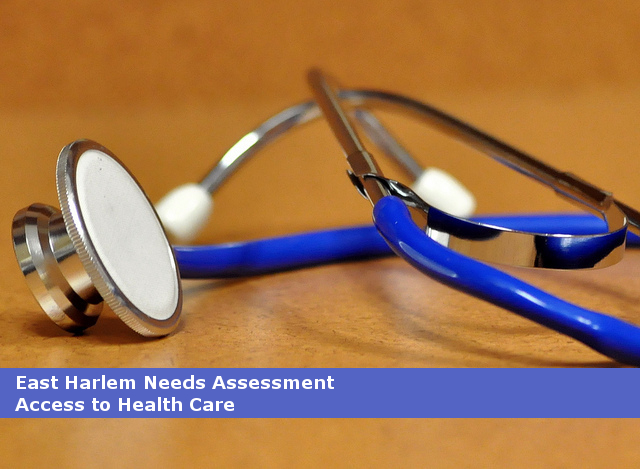
Several groups have assessed the need for better healthcare access in the community. Here we present key findings and recommendations.
Key Findings:
Access to care is limited by:
- Lack of health insurance. A significant number of residents in these communities are eligible for public health insurance but not enrolled
- Large number of patients not seen a primary care provider, particularly among residents.
- Cancer, heart disease, accidents and injuries, mental illness, diabetes, HIV/AIDS, asthma, assault and homicide are consistently the leading causes of hospitalization and/or death.
- Obesity, diabetes, asthma, and mental health are major health concerns
- Even among those with access to care there remain significant financial barriers to good diabetes care, and a need to address and optimize how individuals with diabetes manage their disease.
Health Status:
- While 90% of respondents said they know how to take their medicines, between 19% and 39% do not understand other aspects of their diabetes management.
- Many limit their diabetes care due to concerns about money (16% to 40%), and other barriers, such as language and transportation (19% to 22%).
- Greatest health care needs identified were: diabetes and pre-diabetes;
lack of education on medication management for men with diabetes, i.e. impotence; high blood pressure; high cholesterol; obesity; HIV/AIDS
smoking; alcohol and substance abuse; depression/mental health/ stress; domestic violence; geriatrics - Although the majority of the population (86%) was insured and had a source of primary care, cancer screening guidelines for breast, cervical, prostate, and colorectal cancers were not being followed.
Key Recommendations:
- Cultural competency in the form of language skills, health literacy strategies and cross-cultural communication skills are necessary to earn the trust of the population.
- Enhancements are needed for diabetes prevention and care and cardiovascular disease management.
- Outreach strategies, targeted curricula, educational sessions, and screening programs should be developed and implemented to improve knowledge levels and increase screening participation.

